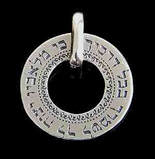
If I Convert Will I Be Accepted as Jewish?)
Dear Dawn,
My fiancé is Jewish and I was raised basically Christian but not going to church. I really like his family traditions and am attracted to Judaism. I am thinking of converting, but a Jewish co-worker told me that I can never really be Jewish. If I go forward with my plan to convert, will I be accepted as Jewish in America? What about in Israel? — Feeling Jewish Inside
Dear Feeling Jewish: People have been converting to Judaism since time immemorial; some are quite famous, like Ruth, who has her own book in the Jewish Bible and from whose lineage it is said the Messiah will come.
My guess is that your co-worker is not part of a synagogue or a Jewish study program. In a formal Jewish setting, he would have learned that being Jewish is not only a matter of lineage. Conversion is the “other” way people become Jewish.
Not a lot of people convert to Judaism, so most Jews don’t know much about converts. There are two general stereotypes about converts. One, they are super Jews — more knowledgeable and more observant than born Jews. Two, they are fair-weather Jews; at any moment they will lapse back to their non-Jewish identity. Neither of these is fair or accurate, but stereotypes rarely are.
In modern days we have several different branches of Judaism. For Jews-by-choice, their identity as Jews is determined by that of the rabbi who converts them. So if you work with a Reform rabbi, you will have a Reform conversion and Jews who believe your rabbi is authentic will accept you as Jewish.
Reform Jews accept as validly Jewish those converts who work with ordained rabbis from major Jewish streams. Other movements have other criteria, and Orthodox rabbis accept only Orthodox conversions as truly authentic.
In general, for purposes of the law of return, or immigration, the government of Israel accepts those who have been converted outside Israel by rabbis who are on the official government list. Rabbis who wish to have their conversions accepted must get their names on the list. At this time, I understand, the Reform, Conservative, Orthodox and Reconstructionist movements all have their rabbis on the list. The Renewal movement has not done so yet.
However, the Orthodox Israeli rabbinate accepts few converts outside of their own movement. What they control in Israel is marriage and burial, so unless you’re planning to be married or buried in Israel, you needn’t be concerned.
Now, what about those who don’t accept you? Ask yourself, do you accept their views of Jewish law and practice? If yes, then convert with their movement. If not, then let it go.
Should you convert at all? If you feel Jewish inside, then yes, it is time to bring your Jewish soul home. You should be doing this for yourself, not for your marriage. I trust that your fiancé is supportive of you and will work with you as you study to become a Jew. Will people, Jews and non-Jews, question your authenticity over the years ahead? Perhaps, but this is about you, not them. You will develop your own Jewish circle and they will see you as a Jew.
One point: In order to convert, you must study with a rabbi for a period of time, typically a year. During that time the rabbi considers the door to be open. That means you are welcome to leave at any time. Should you study for a few months and then determine that you don’t want to become Jewish, there are no hard feelings. You can remain friends with the rabbi and go on as a non-Jewish member of the synagogue.
I suggest that you begin. If your fiancé or his parents are members of a Bay Area synagogue, call and make an appointment with their rabbi. Ask about that rabbi’s conversion process. Sign up for a basic Judaism class. Not only will you learn a lot, you’ll meet a number of other people who are considering or in the process of conversion. They will be helpful voices in your decision process. Be sure to take your fiancé along to the class; it will be something to share.
 RSS Feed
RSS Feed